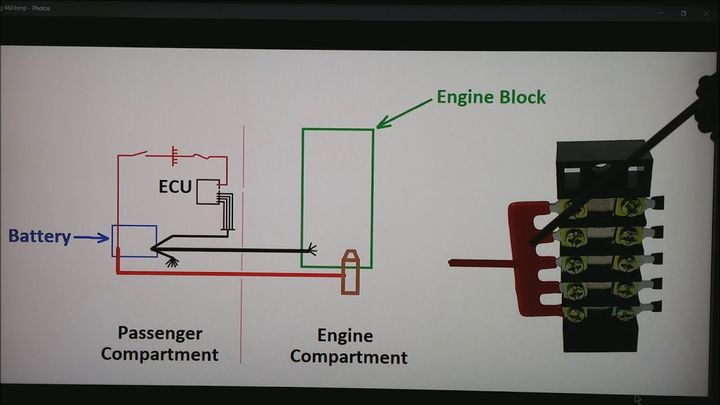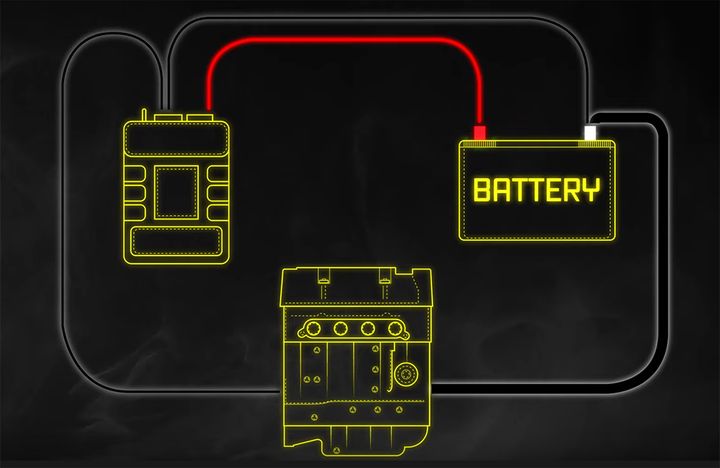


A faulty engine control unit (ECU) ground can wreak havoc on your vehicle's performance and electrical systems. This comprehensive guide explores the telltale signs, underlying causes, and effective solutions to restore smooth operation.

The ECU ground serves as a stable voltage reference point for the entire electrical system, enabling accurate sensor readings and precise engine management. Without a proper ground, the ECU's ability to function correctly is compromised, leading to various issues.
| Role of ECU Ground | Consequences of Poor Ground |
|---|---|
| Provides a low-resistance path for electrical currents | Introduces excessive resistance, causing voltage fluctuations |
| Establishes a stable reference voltage for the ECU | Leads to erroneous sensor readings and improper engine management |
| Enables accurate sensor input interpretation | Results in performance issues and electrical system problems |
A faulty ECU ground can manifest in various ways, affecting both engine performance and electrical systems.
Erratic idle or stalling
Poor engine running conditions
Excessive fuel consumption
Misfiring and hesitation under load
Check engine light illumination
Difficulty starting the engine
Dim or flickering lights
Accessory malfunctions (radio, power windows, etc.)
Understanding the underlying causes is crucial for effective diagnosis and repair.
| Cause | Description |
|---|---|
| Loose or corroded connections | At the ECU, engine block, chassis grounds, or battery terminals |
| Damaged ground wires | Wiring breaks, insulation damage, or poor routing |
| Faulty ground distribution | Corrosion buildup at distribution points or damaged ground straps |
A systematic approach involving visual inspections and electrical testing is necessary for accurate diagnosis.
Visual Inspection:
Check ground wires for damage
Inspect connections for looseness or corrosion
Look for corrosion buildup at ground points
Electrical Testing:
Continuity checks between ground points and chassis
Resistance measurements across the ground circuit
Voltage drop tests to identify high-resistance areas
Additionally, reading diagnostic trouble codes related to sensor readings or ignition issues can provide valuable clues.
Once the source of the issue is identified, take the following corrective actions:
Clean corrosion at ground connections and distribution points
Tighten loose connections to specified torque values
Replace damaged or excessively corroded ground wires
Verify a low-resistance ground path after repairs
Maintaining a reliable ECU ground is crucial for:
Stable reference voltages
Accurate sensor readings
Proper engine management functions (fuel delivery, ignition timing, etc.)
Neglecting grounding issues can lead to decreased performance, reduced fuel efficiency, and increased emissions.
A bad ECU ground can manifest in various symptoms, from erratic engine behavior to electrical gremlins. By understanding the causes, recognizing the signs, and following proper diagnostic and repair procedures, you can restore a reliable ground path and ensure optimal vehicle operation. Don't let a simple ground fault ruin your drive – prioritize proper grounding for a smooth journey ahead.
A poor ECU ground introduces excessive resistance, causing voltage fluctuations and leading to erroneous sensor readings and improper engine management.
The ECU ground provides a low-resistance path for electrical currents and establishes a stable reference voltage for the ECU to enable accurate sensor readings and precise engine management.
A bad ECU ground can cause erratic idle or stalling, poor engine running conditions, excessive fuel consumption, and misfiring and hesitation under load.
A faulty ECU ground can lead to check engine light illumination, difficulty starting the engine, dim or flickering lights, and accessory malfunctions (radio, power windows, etc.).
Common causes include loose or corroded connections at the ECU, engine block, chassis grounds, or battery terminals, damaged ground wires, and faulty ground distribution points or damaged ground straps.
ECU ground issues can be diagnosed through visual inspections (checking ground wires, connections, and corrosion), electrical testing (continuity checks, resistance measurements, and voltage drop tests), and reading diagnostic trouble codes related to sensor readings or ignition issues.
Corrective actions include cleaning corrosion at ground connections and distribution points, tightening loose connections, replacing damaged or excessively corroded ground wires, and verifying a low-resistance ground path after repairs.
Maintaining a reliable ECU ground is crucial for stable reference voltages, accurate sensor readings, and proper engine management functions (fuel delivery, ignition timing, etc.), which ultimately affects performance, fuel efficiency, and emissions.
Neglecting grounding issues can lead to decreased performance, reduced fuel efficiency, and increased emissions, as well as potential damage to the ECU and other electrical components.
Following proper diagnostic and repair procedures for ECU grounding faults is essential to accurately identify the source of the issue and implement effective corrective actions, ensuring optimal vehicle operation and preventing further damage or complications.

Miguel started tinkering with car radios as a teenager, fascinated by the intricate dance of wires and circuits. This passion led him to pursue a career as an automotive electrician. For the past 10 years, Miguel has tackled everything from flickering headlights to mysterious electrical gremlins. He thrives on troubleshooting electrical problems and enjoys sharing his knowledge to empower car owners to understand their vehicles better.



